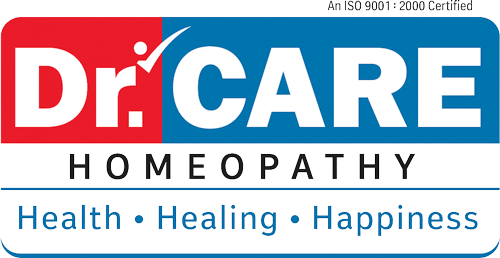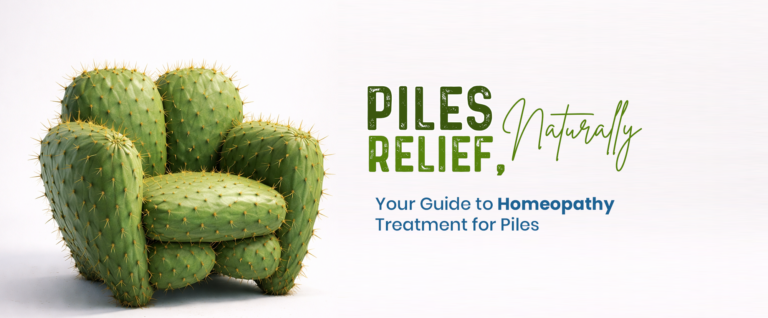What does the future hold for Homeopathy: Homeopathy has long been a topic of controversy, balancing between passionate advocacy and intense skepticism. Supporters highlight its holistic, personalized approach that considers the patient’s overall well-being rather than just addressing symptoms. They argue that homeopathy stimulates the body’s self-healing mechanisms, making it a natural and non-invasive form of treatment. However, critics question its scientific foundation, pointing out the lack of robust clinical evidence supporting its efficacy. Despite these debates, homeopathy continues to be widely practiced, with millions of users worldwide relying on it for various health conditions.
As global healthcare trends shift towards integrative and patient-centered approaches, homeopathy finds itself at a crossroads. Advances in scientific research are exploring the mechanisms behind homeopathic remedies, while policy changes in different countries influence its regulation and accessibility. Additionally, growing consumer interest in natural and alternative therapies is driving demand for homeopathic treatments. Whether homeopathy gains broader acceptance in mainstream medicine or remains a complementary practice will largely depend on continued research, evolving healthcare policies, and the ability to bridge the gap between traditional practices and modern scientific validation.
Homeopathy Growing Global Recognition:
The World Health Organization (WHO) has acknowledged the role of traditional and complementary medicine, including homeopathy, in achieving global health goals. In India, homeopathy is officially recognized and integrated into the healthcare system. Experts believe that homeopathy will play a key role in achieving wellness goals, especially in India, where it is widely accepted and practiced.
Homeopathy Regulatory Changes and Industry Growth:
Homeopathy’s future will also be influenced by regulatory decisions. In the United States, the FDA and other regulatory bodies are closely evaluating homeopathic medicines to ensure their safety and efficacy. While some challenges exist, experts argue that clear regulatory frameworks can improve the quality of homeopathic products and increase consumer trust.
Homeopathy Scientific Research and Advancements:
Scientific research into homeopathy is evolving, with efforts aimed at uncovering the underlying mechanisms that drive its effects. A study published in ScienceDirect explores the molecular and biochemical basis of homeopathic remedies, suggesting that these ultra-diluted substances may influence biological systems in ways not yet fully understood. Such research seeks to provide a scientific framework for homeopathy, potentially validating its principles and helping bridge the gap between traditional holistic healing and modern medical science. While skepticism remains, these studies are paving the way for a deeper understanding of how homeopathy interacts with the human body at a cellular level.
Moreover, emerging technologies are shaping the future of homeopathy by integrating advanced scientific tools. Researchers on ResearchGate have identified groundbreaking trends such as nanotechnology and bioinformatics, which could revolutionize homeopathic medicine. Nanotechnology, for instance, may provide insights into how homeopathic dilutions retain biological activity despite extreme dilution, while bioinformatics can help analyze patterns in patient responses to homeopathic treatments. These advancements have the potential to enhance the credibility, precision, and effectiveness of homeopathy, making it more accessible and scientifically validated in the coming years.
Homeopathy in the Digital Age:
The integration of digital health technologies is transforming the landscape of homeopathy, making it more accessible and efficient than ever before. Telemedicine platforms and online consultations have enabled homeopathic practitioners to connect with patients across the globe, breaking geographical barriers and expanding access to holistic care. Patients can now seek expert guidance from homeopaths through virtual consultations, receive personalized treatment plans, and even order remedies online. This digital shift not only enhances convenience but also ensures continuity of care, particularly for those in remote areas or individuals seeking alternative treatments alongside conventional medicine.
Moreover, advancements in artificial intelligence (AI) and big data are revolutionizing the way homeopathic treatments are tailored to individual patients. AI-powered diagnostic tools can analyze vast amounts of patient data, including symptoms, medical history, and genetic predispositions, to recommend highly personalized homeopathic remedies. Big data analytics can help identify trends and patterns in treatment responses, refining homeopathic methodologies for better patient outcomes. These technological innovations are not only improving the precision of homeopathic prescriptions but also contributing to a more evidence-based approach, potentially increasing its acceptance within mainstream healthcare.
Consumer Demand and Market Trends:
The increasing preference for natural and holistic healing methods has fueled the growth of the homeopathic market worldwide. As consumers become more health-conscious, many are seeking alternatives to conventional pharmaceuticals, especially for managing chronic conditions such as allergies, migraines, digestive disorders, and autoimmune diseases. Homeopathy, with its individualized approach and minimal side effects, aligns well with this shift toward wellness-focused healthcare. The demand is particularly strong among individuals looking for gentler, non-invasive treatments that complement their existing medical care. This trend is also evident in the rising availability of homeopathic products in pharmacies, wellness stores, and online platforms, making these remedies more accessible to a broader audience.
Industry experts highlight that homeopathy is gaining significant traction in wellness-driven markets, particularly in regions where integrative and preventive healthcare is on the rise. The growing consumer interest has led to increased investment in homeopathic research, product development, and regulatory advancements. Countries such as India, Germany, France, and Brazil are witnessing a surge in homeopathic practitioners and manufacturing companies, further solidifying its market presence. Additionally, as digital health solutions expand, e-commerce platforms and telemedicine services are making homeopathic treatments more convenient than ever. With ongoing consumer demand and evolving market dynamics, homeopathy is poised to play a more prominent role in the future of global healthcare.
Homeopathy Regulatory Landscape:
The regulatory landscape for homeopathy is undergoing significant changes as authorities worldwide strive to ensure consumer safety and product efficacy. With the increasing popularity of homeopathic treatments, regulatory bodies are tightening oversight to prevent misleading claims and ensure the quality of products available in the market. In the United States, the Food and Drug Administration (FDA) has adopted a risk-based enforcement approach, focusing on homeopathic drug products that pose the greatest safety concerns. This includes products marketed for serious health conditions without scientific evidence, those containing potentially harmful ingredients, and those failing to meet established quality standards. The FDA’s updated guidance, issued in December 2019, underscores the importance of stricter compliance with safety regulations, marking a shift from previous policies that allowed more leniency in the homeopathic sector.
Beyond the U.S., other countries have also intensified regulatory scrutiny. The European Medicines Agency (EMA) and regulatory bodies in India, Germany, and the UK have established frameworks to ensure that homeopathic products meet defined safety, efficacy, and manufacturing standards. In India, homeopathy is officially recognized under the Ministry of AYUSH, which sets guidelines for quality control and clinical validation of homeopathic medicines. Meanwhile, Health Canada mandates that homeopathic products must meet specific licensing requirements, including evidence of traditional use and adherence to good manufacturing practices. This evolving regulatory environment highlights the increasing need for rigorous quality control, standardized production methods, and scientific validation to ensure homeopathy remains a trusted and safe therapeutic option in global healthcare.
Homeopathy Role in Holistic Health:
Homeopathy is gaining recognition as a vital component of holistic and integrative healthcare, particularly in regions where traditional and alternative medicine are deeply valued. Unlike conventional medicine, which often focuses on symptom management, homeopathy emphasizes the body’s self-healing ability, addressing physical, mental, and emotional well-being as interconnected aspects of health. This aligns with the principles of integrative medicine, which combines conventional treatments with complementary approaches to promote overall wellness. Given the rising burden of chronic diseases such as diabetes, hypertension, and autoimmune disorders, many healthcare practitioners are incorporating homeopathy into broader treatment plans to provide personalized, patient-centered India has emerged as a global leader in promoting homeopathy as part of its national healthcare strategy. The Ministry of AYUSH (Ayurveda, Yoga, Unani, Siddha, and Homeopathy) actively supports research, education, and widespread adoption of homeopathic treatments.
Conclusion:
The future of homeopathy is shaped by a complex interplay of scientific research, regulatory changes, technological advancements, and consumer demand. While skepticism persists regarding its efficacy, homeopathy continues to thrive due to its holistic approach and growing integration into patient-centered healthcare models. Advances in nanotechnology, bioinformatics, and AI-driven diagnostics are paving the way for a more evidence-based and personalized application of homeopathic treatments.
Furthermore, the increasing global preference for natural and non-invasive therapies has strengthened homeopathy’s market presence, particularly in countries like India, Germany, France, and Brazil. Regulatory bodies worldwide are tightening standards to ensure the safety and quality of homeopathic products, which may help build greater trust among both consumers and healthcare professionals.
Ultimately, homeopathy’s long-term acceptance and growth will depend on continued scientific validation, transparent regulations, and its ability to integrate with mainstream medicine. If these challenges are addressed, homeopathy has the potential to evolve into a well-regulated, complementary therapy that aligns with modern healthcare needs.





